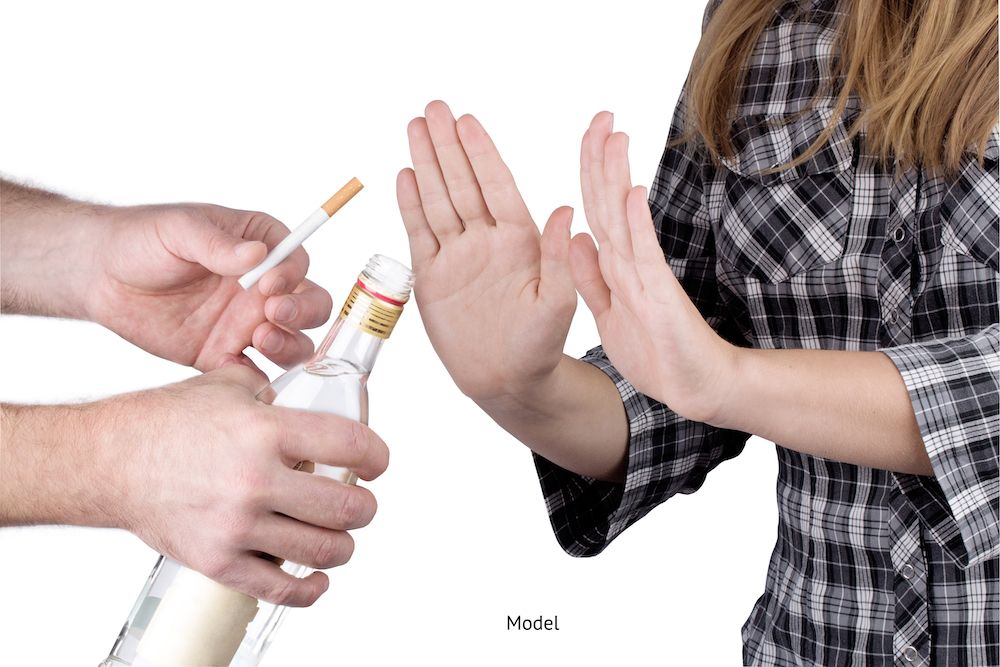Stop Smoking and Drinking Before Surgery: Risks and Consequences
Posted March 31, 2020 in Preparing for Surgery

Woman refusing smoking and alcohol before her surgery.
2 Minute Read:
Cosmetic surgery is a big commitment that involves risks to your health and overall wellbeing. The choices you make leading up to and following your procedure can help you to reduce these risks, stay safe, and improve the outcome of your results. Unfortunately, they can also go the other way around.
Lifestyle habits, such as smoking and drinking, can affect how your body responds to invasive surgery. No matter which procedure you undergo, you will likely need to refrain from smoking and drinking.
Some of the most commonly performed surgical procedures that require you to avoid drinking and smoking include breast augmentation surgery, body contouring with tummy tuck surgery, and fat reduction with liposuction.
What Do Smoking and Drinking Do to the Body?
Decreases Blood Flow
The nicotine found in cigarettes causes the blood vessels to contract. When the blood vessels become too narrow, it restricts the amount of blood that can flow to vital organs. Lack of oxygen can cause further complications such as stroke or heart attack.
Prolongs the Healing Process
Nicotine also reduces blood flow to the skin, which can prevent the repair of injured tissue following your procedure. This can contribute to the wounds not closing correctly or cause increased scarring.
Causes Dehydration
Alcohol is a diuretic, meaning that it causes your body to remove fluids from your blood much faster than other liquids. It is possible to counteract this effect by drinking water, but due to the other negative effects of alcohol, it should still be avoided.
Leads to Complications With Medication
Virtually all patients will need to take some form of painkiller to make themselves more comfortable during their healing process. Whether it be an over-the-counter drug or prescription medication, it can be very dangerous to mix alcohol with medication.
Mixing alcohol and medication can cause issues such as:
- Making the medicine ineffective or toxic to the body
- Nausea
- Vomiting
- Headaches
- Fainting
- Dizziness
Weakens the Immune System
It is necessary to keep your immune system healthy to make sure that your body is fit to undergo and recover from your procedure. Alcohol can hinder your body’s ability to prevent certain harmful bacteria from entering your blood. It also reduces the number and function of macrophages (T and C cells), which are essential to your immune system.
Increases Bleeding
Alcohol is known as a blood thinner because it hinders the blood cells from being able to stick together and clot properly. This can also increase the risk of stroke and excessive bleeding both during and following your surgery.
Want to Learn More?
If you want to learn more about how to prepare yourself for your surgery, please feel free to contact Dr.Grazer’s office at 949-644-1240 or fill out this contact form.